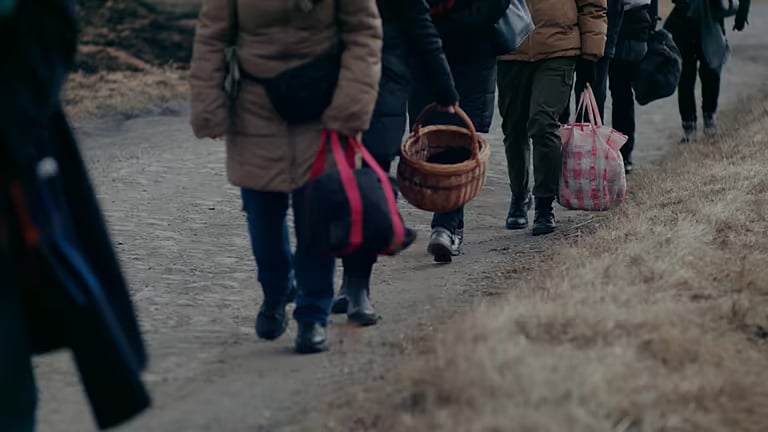
Image for representative purposes.
Credit: iStock Photo
The reintroduction of spot checks at the German-Polish border signifies serious concern about the longevity of the famed passport-free travel zone within much of Europe, as the neighbours are engaged in a tussle over irregular migrants and asylum seekers.
Poland reinstated temporary controls at 52 border crossings along its western boundary on July 7 to stop Germany from allegedly returning undocumented migrants into its territory. Similar spot checks were introduced along the northeastern border with Lithuania to check illegal migrants entering via Belarus. This means that anyone, even citizens or documented residents, would have to undergo spot checks at the border checkpoints, the very impediment Europe had freed itself from by introducing the acclaimed passport-free mobility within the region.
But the actual number of migrants Germany returned to Poland was rather small and not too different from last year’s. According to the Polish newspaper Fakt, Germany returned 1,087 irregular migrants to Poland between May 1 and June 15, but noted that the figure was quite similar to the corresponding period last year. But Germany puts the number at around 160.
Polish Prime Minister Donald Tusk, however, cited the border controls as a response to Germany’s unilateral decision to tighten irregular migration. The centrist leader noted that his country’s patience was “wearing out” over this. He justified the restoration of border checks as an imperative measure to ensure illegal migrants sent in from Germany were indeed the responsibility of Poland. German Chancellor Friedrich Merz, who is hounded by Germany’s anti-immigration far-right, asserted that his country has not returned any irregular migrants who had already arrived in Germany. However, he warned that the much-hailed Schengen system would survive only if it was not allowed to be abused through the passport-free system.
Germany recorded a 4.1% hike in asylum seekers, from 3.18 million in 2023 to 3.3 million in 2024. Most of them are from Ukraine and Syria. After assuming office in May following a narrow electoral win, Merz had further tightened migration. His government has thus far rejected close to 6,000 undocumented migrants at its land borders, about 300 of whom were asylum seekers, according to the German interior ministry.
Germany’s previous Centre-Left government had reinstated spot checks at land crossings in October 2023 and further tightened them a year later. But that wasn’t enough to satisfy the far-right Alternative for Deutschland (AfD), which rode popular support to become the second biggest party in the parliamentary elections in May this year.
Shift in policy
Uncontrolled irregular migration has already forced 11 of the 29 countries in the Schengen visa-free zone to reinstate border checks. The German-Polish border tussle over irregular migrants has thrown a huge challenge to Tusk, whose centrist coalition is already facing stiff opposition from the far-right Law and Justice (abbreviated PiS) party and its President-elect Karol Nawrocki. Even if Tusk’s coalition survives the presidential electoral reverse his party suffered in June, the border issue could prove decisive in the 2027 national elections.
The Schengen scheme was launched in 1995 by Germany, France, Belgium, Luxembourg, the Netherlands, Portugal, and Spain. The number of member countries gradually increased to 29. The Gulf Cooperation Council states are expected to replicate the system with a unified visa. But free travel within the Schengen states was not without its challenges to the host nations, as illegal migrants found it easy to move between member states. The tipping point came when millions of refugees, most of them from war-torn Syria, flowed into the region, and then German Chancellor Angela Merkel and her Austrian counterpart opened their doors to welcome the arriving millions, cheered on by the locals.
The gamble paid off with a majority of the migrants integrating well. But some of them, mainly from the Middle East and Africa, resorted to violence, putting pressure on Merkel’s “welcoming culture.” While hundreds of Arab and North African migrants were held for molesting and robbing over 1,000 women New Year’s eve revellers in Cologne in 2015 itself, individual cases of mainly Arab migrants ploughing motor vehicles through Christmas gatherings and stabbing incidents that claimed several lives not only cast a shadow of fear among the local populace, but helped the anti-immigration far-right scale unprecedented heights in the region.
Experts expect Berlin and Warsaw to sort out the issue before it spirals into a pan-Europe dispute that the bloc can’t afford to have, especially since it’s faced with huge transatlantic challenges with US President Donald Trump wielding his trade war card.
(The writer is a senior journalist based in Berlin)